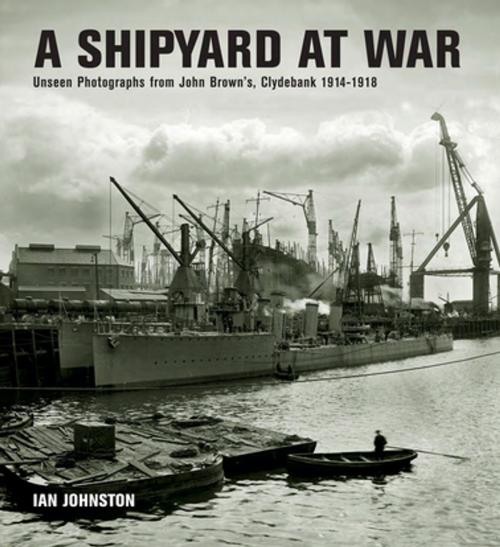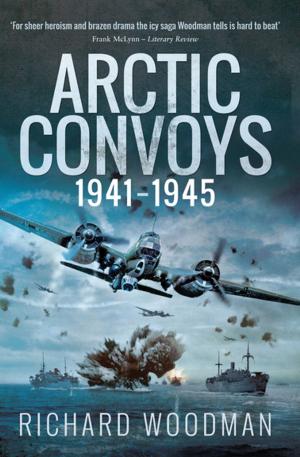A Shipyard at War
Unseen Photographs from John Brown's, Clydebank 1914–1918
Nonfiction, History, Military, Naval, British| Author: | Ian Johnston | ISBN: | 9781848323018 |
| Publisher: | Pen & Sword Books | Publication: | November 19, 2014 |
| Imprint: | Seaforth Publishing | Language: | English |
| Author: | Ian Johnston |
| ISBN: | 9781848323018 |
| Publisher: | Pen & Sword Books |
| Publication: | November 19, 2014 |
| Imprint: | Seaforth Publishing |
| Language: | English |
A treasury of photos illustrating the work of the famed British shipbuilders of World War I.
Although best known for large liners and capital ships, between 1914 and 1920 the Clydebank shipyard of John Brown & Co. built a vast range of vessels—major warships down to destroyers and submarines, unusual designs like a seaplane carrier and submarine depot ship, and even a batch of war-standard merchant ships.
This makes the yard a particularly good example of the wartime shipbuilding effort. Clydebank employed professional photographers to record the whole process of construction, using large plate cameras that produced pictures of stunning clarity and detail; but unlike most shipyard photography, Clydebank’s collection has survived, although relatively few of the images have ever been published. For this book, some two hundred of the most telling were carefully selected and scanned to the highest standards, depicting in unprecedented detail every aspect of the yard’s output, from the liner Aquitania in 1913 to the cruiser Enterprise, completed in 1920.
Although ships are the main focus of the book, the photos also chronicle the impact of the war on working conditions in the yard—and the introduction of women in large numbers to the workforce. With lengthy and informative captions, and an authoritative introduction by Ian Johnston, this book is a vivid portrait of a lost industry at the height of its success.
A treasury of photos illustrating the work of the famed British shipbuilders of World War I.
Although best known for large liners and capital ships, between 1914 and 1920 the Clydebank shipyard of John Brown & Co. built a vast range of vessels—major warships down to destroyers and submarines, unusual designs like a seaplane carrier and submarine depot ship, and even a batch of war-standard merchant ships.
This makes the yard a particularly good example of the wartime shipbuilding effort. Clydebank employed professional photographers to record the whole process of construction, using large plate cameras that produced pictures of stunning clarity and detail; but unlike most shipyard photography, Clydebank’s collection has survived, although relatively few of the images have ever been published. For this book, some two hundred of the most telling were carefully selected and scanned to the highest standards, depicting in unprecedented detail every aspect of the yard’s output, from the liner Aquitania in 1913 to the cruiser Enterprise, completed in 1920.
Although ships are the main focus of the book, the photos also chronicle the impact of the war on working conditions in the yard—and the introduction of women in large numbers to the workforce. With lengthy and informative captions, and an authoritative introduction by Ian Johnston, this book is a vivid portrait of a lost industry at the height of its success.















